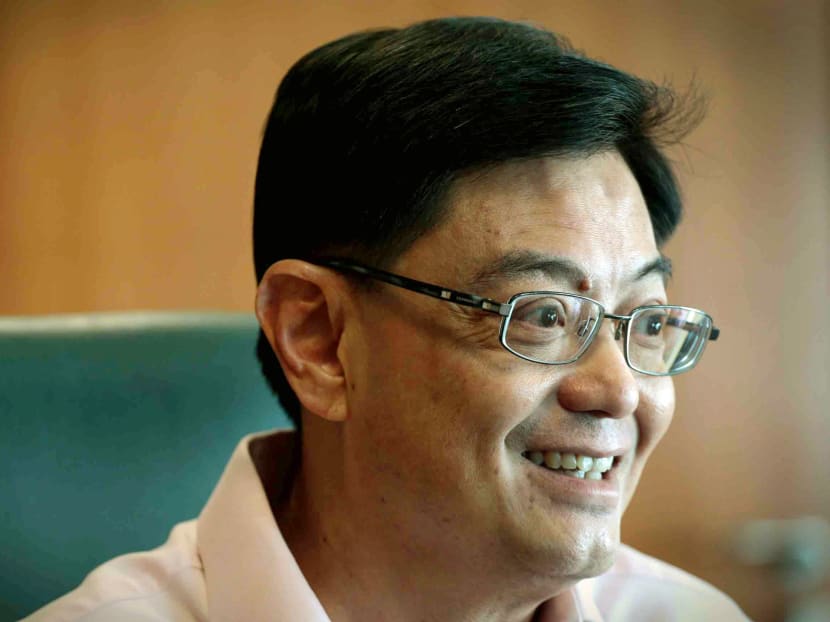Value-creation the focus for economy panel
SINGAPORE — The newly-formed committee tasked with charting the Republic’s economic future wants growth to be driven by creating value, instead of adding value, Finance Minister Heng Swee Keat said today (Oct 28) as he looks to submit its recommendations around December next year.

Finance Minister Heng Swee Keat. Photo: Jason Quah
SINGAPORE — The newly-formed committee tasked with charting the Republic’s economic future wants growth to be driven by creating value, instead of adding value, Finance Minister Heng Swee Keat said today (Oct 28) as he looks to submit its recommendations around December next year.
Mr Heng, who chairs the economic review committee, said this shift is necessary against the backdrop of rapidly changing global conditions and technological advancements, which have altered the growth profiles of many countries. In Singapore, these developments call for the need to be more productive amid scarce resources, obtain higher skills and higher innovation capacity.
“I believe that the key shift that we need to make is to move from a value-adding economy to a value-creating economy where we’ll be a home base for innovative entrepreneurial companies in Singapore, and where we maximise our value as a trusted node in the global Asia configuration,” Mr Heng told reporters after a meeting with the Singapore Business Federation (SBF) today.
“We can build linkages globally and ... optimise our resources especially in land and in labour, and in that way we can create value in a very cost competitive way,” he said.
Mr Heng’s comments came a day after the Monetary Authority of Singapore, in its twice-yearly Macroeconomic Review, said that as the Republic enters the next phase of economic restructuring, growth will have to be driven by productivity gains that are underpinned by knowledge and skill upgrades.
Mr Heng said Minister for Trade and Industry (Industry) S Iswaran will be the committee’s deputy chairman, and its other members will be announced in early December.
The committee, which will take about 12 months to submit its report, will focus on five “futures” of the economy: Jobs, companies, resources, technology and markets.
Its tasks include coming up with strategies to equip the workforce with the appropriate skills, helping companies take advantage of technology and innovation to build capabilities as well as accessing overseas markets for growth opportunities.
Tackling these five “futures” also enables the committee to look at enhancing productivity “from a different lens”, Mr Heng said in response to a question on whether his committee’s creation signals the Government’s intention to move away from the strategies outlined by the previous committee chaired by then Finance Minister Tharman Shanmugaratnam.
The Economic Strategies Committee, which convened in 2009, had set a target of 2-3 per cent annual productivity growth in the 10 years to 2019.
“It (The goal) is about creating value in the economy in a cost competitive way, that’s how productivity changes and in order to achieve that, I’m hoping that the committee takes a look at it from another perspective,” Mr Heng said.
The committee’s work will involve more consultations with the business community to understand their concerns and the challenges they face.
On his meeting with the SBF today, Mr Heng said the feedback he received was within the five areas his committee will work on.
SBF chairman Teo Siong Seng said some of the discussion points included the importance of companies tapping opportunities overseas for growth and issues related to the costs of doing business.






